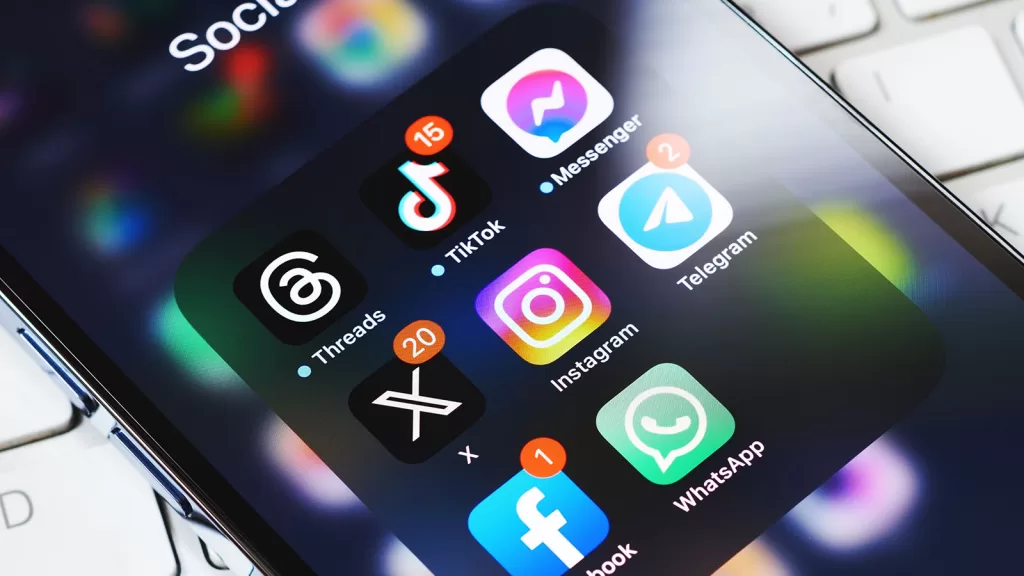Born in 1981, I’m barely a millennial, and millennials seem to occupy a particularly misunderstood space. Born between the early 1980s and the mid-1990s, Millennials have grown up in a world that’s changed a ton, shaped by technological advancements, economic shifts, and evolving social norms.
Yet, despite their ubiquitous presence in the workforce and society at large, there are still numerous misconceptions about this diverse and dynamic generation.
Let’s dive into 14 things that people just don’t seem to grasp about Millennials.
Job Hopping Isn’t About Impatience

A common stereotype surrounding Millennials is their propensity for job hopping. People assume that millennials quickly get tired of doing the same job and not wanting to just stick it out. However, this behavior often stems from a desire for meaningful work and personal development rather than mere impatience.
Millennials prioritize finding roles that align with their values and offer opportunities for growth. Consequently, they may change jobs more frequently to seek out environments that foster their professional and personal advancement.
The Gig Economy Is Smart, Not Lazy

The rise of the gig economy among Millennials often elicits criticism, with some labeling it as a sign of laziness or lack of commitment. However, this flexible work model mirrors Millennials’ adaptability to changing economic landscapes. The fact is the nature of work is changing.
You don’t need to be sitting in an office to be productive.
Many Millennials leverage gig opportunities to supplement their income, pursue entrepreneurial ventures, or gain diverse experiences. Far from being lazy, Millennials demonstrate resilience and creativity in navigating the modern labor market.
They Are All Saddled With Student Loans

Another aspect frequently misunderstood is the burden of student loan debt that many Millennials carry. Unlike previous generations, Millennials have faced skyrocketing tuition costs, leading to unprecedented levels of student loan debt.
Education has never been as expensive as it is today. This financial strain can significantly impact their ability to achieve traditional milestones such as homeownership and retirement savings.
Understanding this reality is crucial for appreciating the economic challenges that Millennials navigate.
Social Media Isn’t Always About Narcissism

Millennials are often characterized as the “selfie generation,” obsessed with documenting every aspect of their lives on social media. Yet, beneath the surface, social media serves various purposes beyond mere self-promotion.
For Millennials, platforms like Instagram and Facebook provide avenues for social connection, activism, and professional networking. Understanding the multifaceted role of social media is essential for grasping its significance in Millennials’ lives.
Delayed Marriage Reflects Shifting Priorities

Contrary to stereotypes of commitment-phobia, Millennials’ trend towards delayed marriage reflects shifting priorities rather than aversion to long-term relationships. Many Millennials prioritize establishing themselves professionally and achieving financial stability before entering marriage. Getting married too young can be a recipe for disaster.
Moreover, changing societal norms have destigmatized alternative relationship structures, allowing Millennials to explore uncommon paths to partnership and family.
They Are Environmental Extremists

Concerns about climate change and environmental sustainability are central to Millennial values, often overshadowing traditional political divides. This generation recognizes the urgent need for collective action to address environmental challenges, driving widespread support for eco-conscious practices and policies to help slow the planet’s destruction.
Millennials’ commitment to sustainability reflects a broader ethos of social responsibility and global citizenship.
Mental Health Struggles Are Real and Valid

Millennials are often portrayed as the “anxious generation,” grappling with unprecedented levels of stress and mental health issues. However, dismissing these struggles as mere overreaction overlooks the complex societal factors contributing to Millennials’ mental health challenges. Economic uncertainty, social media pressures, and the erosion of traditional support structures all play a role.
Acknowledging and addressing Millennials’ mental health needs is essential for fostering well-being and resilience.
Remote Work Isn’t Just a Perk

The COVID-19 pandemic accelerated the shift towards remote work, a trend that resonates deeply with Millennials. While some may view remote work as a temporary convenience, for Millennials, it represents a fundamental shift in work-life balance and autonomy.
Remote work offers greater flexibility and eliminates geographical barriers, empowering Millennials to design lifestyles that prioritize personal fulfillment alongside professional success.
Diversity and Inclusion Are Requirements

Millennials are the most diverse generation in history, and they prioritize diversity and inclusion in all aspects of life. From workplaces to social circles, Millennials advocate for representation and equity, challenging entrenched systems of privilege and discrimination.
Embracing diversity isn’t merely a trend for Millennials; it’s a fundamental value that shapes their interactions and worldview.
Entrepreneurship Is Easier Than Ever

The Millennial generation has witnessed economic upheavals, from the dot-com bubble burst to the 2008 financial crisis, shaping their entrepreneurial spirit. Many Millennials turn to entrepreneurship out of necessity, seeking financial independence and creative fulfillment in an uncertain job market. Their ventures often prioritize social impact and innovation, reflecting a desire to reshape traditional business paradigms.
Travel Is Education

I’ve learned much more about our world by traveling it than sitting in a classroom, or an office. And it’s not even close.
Millennials prioritize experiences over material possessions, and travel plays a central role in their pursuit of personal growth and cultural understanding. Rather than frivolous indulgence, travel is viewed as a form of education, broadening perspectives and fostering empathy. Millennials value authenticity and seek meaningful connections with people and places around the globe, transcending borders and stereotypes.
Politics Is More Than Voting

Millennials are often criticized for their perceived political apathy, yet this generation actively engages in various forms of activism and advocacy. From grassroots movements to digital campaigns, Millennials leverage their collective voice to effect change on issues ranging from climate action to social justice.
Their approach to political engagement reflects a commitment to participatory democracy and social progress.
Tech Gadgets Aren’t Always A Distraction

While critics decry technology’s role in fostering isolation and superficiality, Millennials harness digital platforms to cultivate genuine connections and community. Social media, messaging apps, and online forums enable Millennials to bridge geographical divides and form supportive networks based on shared interests and values.
Technology isn’t a barrier to authentic relationships for Millennials; it’s a tool for building and sustaining connections in an increasingly interconnected world.
Financial Instability Isn’t Always a Choice

Finally, the precarious financial position of many Millennials isn’t solely attributable to frivolous spending or poor money management. Economic factors such as stagnant wages, rising living costs, and limited job opportunities have created systemic barriers to financial stability for this generation.
Recognizing these challenges is crucial for implementing policies and practices that support Millennials’ economic well-being and future prosperity.


